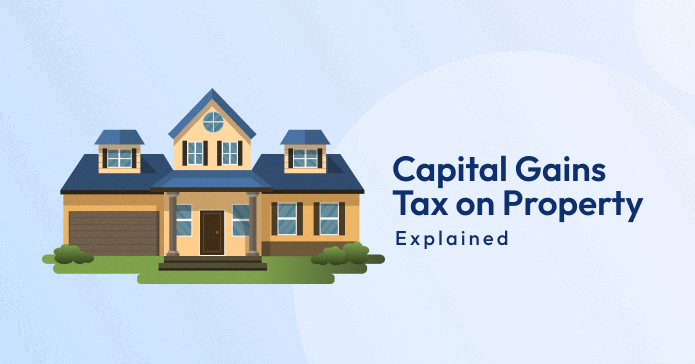Basics of Capital Gains Tax on Property
Capital gains tax (CGT) can be confusing for property owners, but understanding it is essential for maximizing investment returns and optimizing tax strategies. CGT applies to the profit earned from selling assets, such as real estate, and focuses on the profit made rather than the total sale price.
Imagine buying a house for £300,000 and selling it later for £500,000. The £200,000 profit, or 'gain,' is what capital gains tax is calculated on. Understanding CGT is important for homeowners, investors, landlords, and anyone involved in property deals because of its significant tax impact.
When Capital Gains Tax Applies
Understanding, when capital gains tax (CGT) applies, can help you avoid unexpected hefty Capital Gains Tax Bills. Here are some key situations where CGT might impact you:
- Selling Property: When you sell property and make a profit, you may owe capital gains tax, especially if the property isn’t your primary residence.
- Gifting Property: Transferring property as a gift can trigger capital gains tax. The tax is calculated based on the property's market value at the time of gifting.
- Exchanging Assets: Trading assets like properties can result in capital gains tax if you make a profit. This situation is common in events such as divorce settlements or ending a civil partnership.
By understanding these scenarios, you can better manage your capital gains tax obligations.
Remember, CGT doesn't apply to your main home unless it's been used for business or rented out. Knowing these situations helps you plan property transactions to reduce tax liabilities.
How Much Capital Gains Tax Do You Pay on a Property?
The capital gains tax you pay depends on your income and how long you've owned the property. Currently, rates vary from 10% to 28%, based on your tax bracket and the type of asset.
For example, if you're a basic rate taxpayer, you might pay 18% on a property gain. However, if you're in the higher rate bracket, it could be 28%. So, if you sold a property and made a £100,000 gain, you'd owe £18,000 as a basic rate taxpayer and £28,000 if you're in the higher bracket.
These rates can affect your profits, so it's important to consider them in your investment plans. Plus, since government policies can change these rates, it’s a good idea to keep up with the latest tax laws.
Can I Avoid Capital Gains Tax on Property?
Avoiding capital gains tax can be challenging, but there are legal strategies to reduce or eliminate it. Here are some effective ways to minimize capital gains tax:
1) Primary Residence Capital Gains Tax Exemption:
If your home's your main place, you might dodge capital gains tax! But remember, this won't work if you've used it for business or rentals.
2) Spousal Property Transfers:
Considering transferring property to your spouse? This method can help defer capital gains tax, as these transfers are typically exempt. It's a common strategy to reduce tax bills. You can find more tips on how to reduce tax bills here
3) Tax-Deferred Investment Accounts:
Invest in tax-deferred accounts, like some retirement plans, to steer clear of immediate capital gains tax when selling property.
4) Offset Gains with Losses:
Got investments that didn't do so well? Use those losses to offset your gains. It's a smart move to lower your overall capital gains tax.
By planning your property deals wisely and using these tips, you can really cut down your capital gains tax liability!
What Are the New Capital Gains Rules for 2024?
The landscape of capital gains tax is constantly changing, and 2024 is no exception. With Labour avoiding increases in income tax, national insurance, and VAT, many think Chancellor Rachel Reeves may aim to raise funds by increasing inheritance tax and CGT on October 30th.
Currently, CGT ranges from 10% to 28%. However, Ms Reeves hasn't ruled out a potential increase, saying she will “write a Budget two months ahead of delivering it.”
This potential change could significantly impact property owners. A basic rate taxpayer might pay £14,200 on an average UK property gain if predicted rate hikes occur, adding £1,420 more than under current rates. Staying informed about these changes is crucial for strategic planning and avoiding unexpected tax bills.
What is the Six-Year Rule for Capital Gains Tax?
The Six-Year Rule: A Hidden Benefit for Property Owners
The six-year rule is a valuable yet lesser-known element of Capital Gains Tax (CGT) for property owners. This rule allows you to classify a property as your main residence for up to six years after moving out, provided it was your home before you left. Here's a breakdown of how it works:
1) Temporary Absence:
If you move out but plan to return, you can still claim the primary residence exemption for up to six years. This ensures that your property can remain tax-exempt during your absence.
2) Rental Income:
During this period, you can rent out the property without losing the primary residence exemption, as long as you do not declare another property as your main home. This allows you to earn rental income while maintaining CGT exemption.
3) Reoccupy:
If you move back within six years, the exemption continues, minimizing CGT on rental properties. This can be a strategic way to handle multiple properties or frequent relocations.
Understanding the six-year rule can lead to significant tax savings. Especially for property investors or those who frequently move, utilizing this rule can help optimize your property investments and reduce CGT liabilities.
Keywords: six-year rule, property owners, Capital Gains Tax, primary residence exemption, rental income, tax savings, CGT exemption.
How Can Debitam Help You?
Tackling property taxes and capital gains doesn't have to be daunting—let Debitam make it easy for you! We specialize in property tax strategies, keeping property owners, landlords, and real estate pros informed and compliant with the latest tax laws. Whether you're maximizing exemptions with the six-year rule, leveraging spousal transfers, or gearing up for changes in capital gains rates, our expert team is here to offer tailored guidance just for you. Trust Debitam to minimize your tax liabilities and boost your property investments. Contact us today and ease your property tax planning worries!













